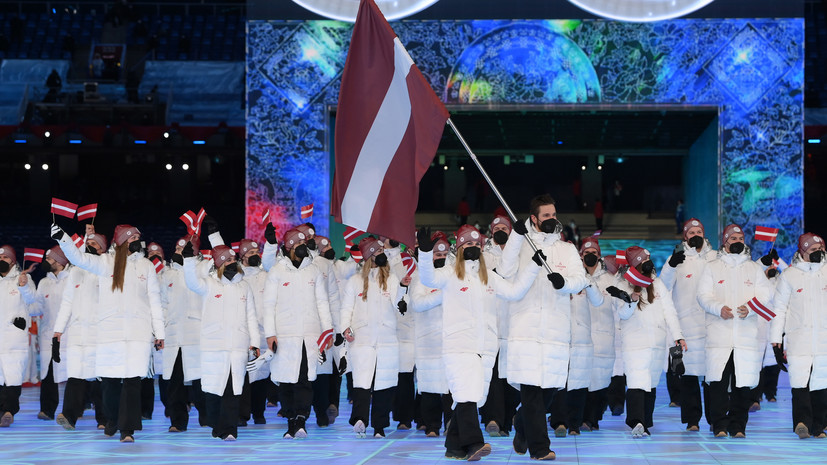The Latvian Seimas adopted amendments to the sports law, which introduce a ban on the country's national teams competing with Russians and Belarusians in team sports. The corresponding restriction will apply regardless of the status of the opponents - whether they compete under their own flags or under neutral ones.
Politicians emphasize that this decision was made to express Latvia’s solidarity with Ukraine. Another, no less important reason is the desire of the Latvian side to protect itself from penalties from international sports federations due to its refusal to play with teams from Russia or Belarus. According to the chairman of the sports subcommittee, Davis Martins Daugavietis, recently some organizations have been taking steps to return representatives of both countries to the world stage and a situation may arise when Latvia ends up in the same group with one of them.
If the Latvian teams refused to play, they would receive a technical defeat or a fine, but if the norm is enshrined in law, the federations will be forced to take this into account, the lawmaker is sure. However, the amendments to the law do not affect the performance of Latvian teams at the Olympic Games - in this case, the decision will remain with the National Olympic Committee.
Another manifestation of Russophobic policies was met with criticism in Russia. Thus, the official representative of the Russian Foreign Ministry Maria Zakharova called this step of the Sejm Nazism.
“This is a manifestation of racism - hatred on ethnic grounds. Nazism in its purest form,” Championship quotes Zakharova.
According to former Sports Minister Pavel Kolobkov, such actions should not go unnoticed by the International Olympic Committee. He emphasized that Latvia, through its law, interferes in the affairs of public sports organizations.
“The IOC must not only speak out, it must automatically impose sanctions. If this does not happen, the International Olympic Committee will admit that it is politicized, cowardly and biased. The Ministry of Sports of Ukraine has already tried to do something similar, but the IOC spoke out about this, and the Ukrainians quickly reversed their decisions, realizing that they were on the verge of disqualification,” TASS quotes the Olympic fencing champion.
In turn, State Duma deputy Svetlana Zhurova expressed the opinion that Latvia has hit its own athletes in this way, who do not have the opportunity to defend their rights and complain about the government. In her opinion, third-party organizations should intervene in the situation.
One of those sports where Russians and Latvians met quite regularly on the international stage was hockey. According to the former coach of the national hockey team, Vladimir Plyushchev, the ban on games with Russia on their part is complete stupidity, which, however, is not even worth attention.
“In general, we don’t care. They are depriving themselves of the opportunity to compete at a very high level in a variety of sports and develop on the world stage. Well, we essentially got nothing from this rivalry. Can we call this a blow to our own athletes? There are probably sports in which they could still compete with us and grow, especially since our countries are quite close geographically and there are also economic components. But to reject your closest neighbor is stupidity and, in general, done out of weakness,” Plyushchev told RT.
And the Belarusian Football Federation was even to some extent happy about this principled position of the former Soviet state, although they called it strange.
“This is their opinion, their decision, we are ready to play with everyone. If the political leadership of the Latvian Republic is trying to limit sports through politics, thereby violating the most important tenet of the Olympic Charter, there is no comment. No matter how much and no matter who says that sport is outside of politics, but, unfortunately, the Baltic countries make politics out of sport. We are upset, I hope that UEFA will separate us in possible competitions. But if they refuse to play with us, then we will be happy, since we will get two technical victories,” TASS quotes the head of the organization, Andrei Vasilevich.
The President of the Russian Wrestling Federation, Mikhail Mamiashvili, meanwhile, believes that the Latvian government is not afraid of the sporting competition as such, but of the live communication of its athletes with Russians and Belarusians.
“You can say one thing on television and on social networks, but in a conversation with real people the truth is revealed,” Mamiashvili told RT.

